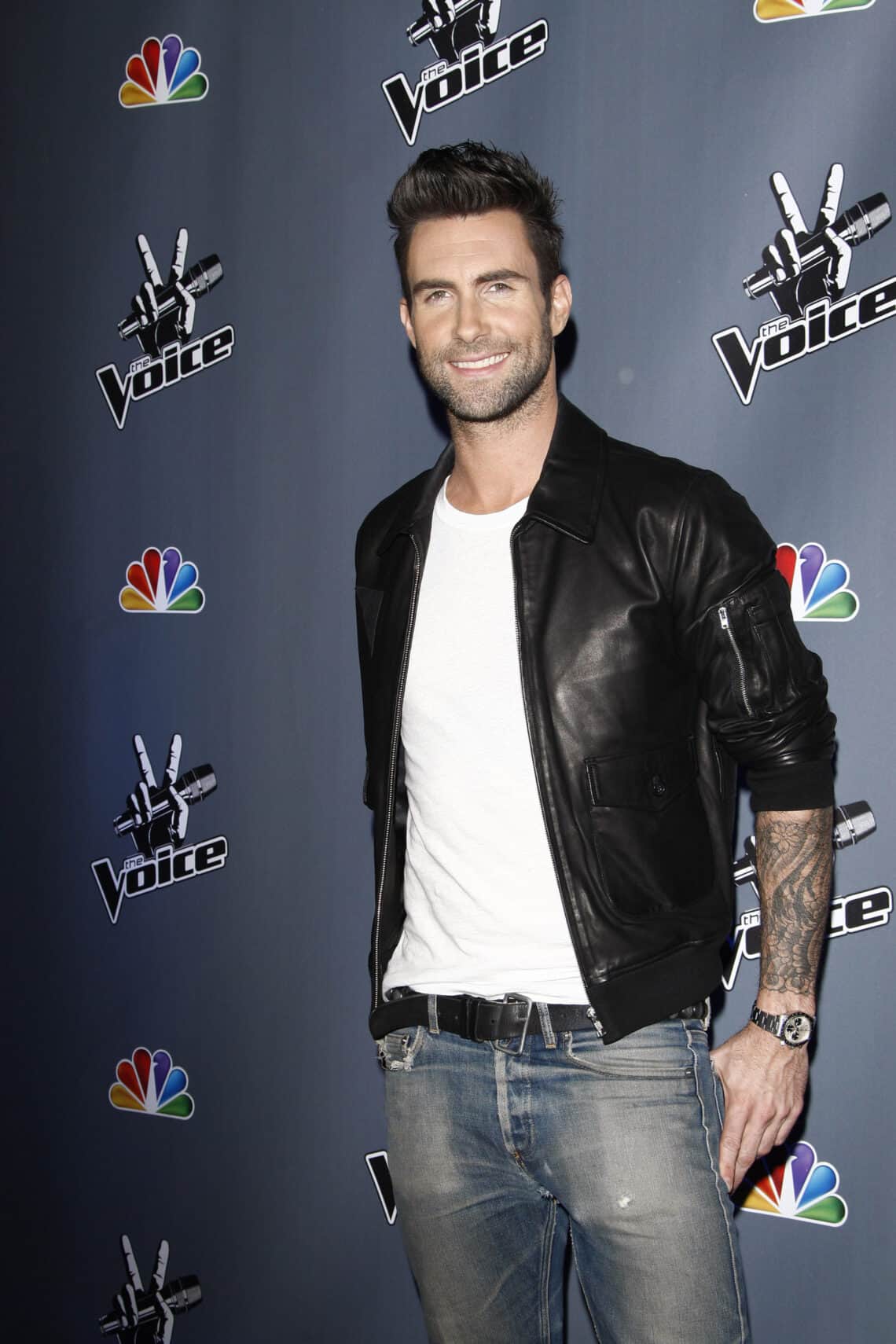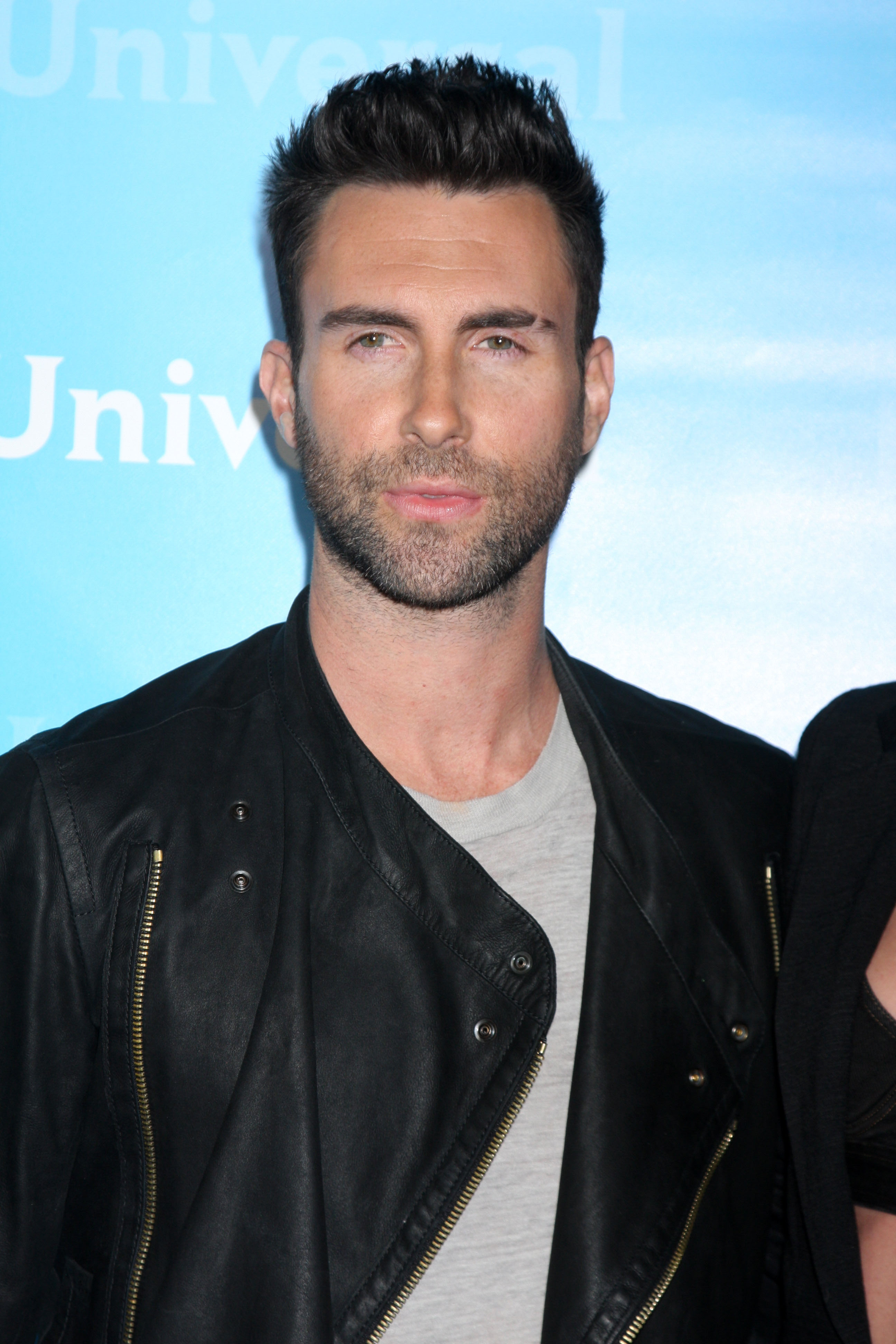Should a person's sexuality be a topic of public debate? Adam Levine, the Maroon 5 frontman and "The Voice" coach, has ignited a fierce discussion by openly criticizing "American Idol" for allegedly obscuring the sexuality of its contestants. This has not only stirred controversy but also thrust the issue of representation and authenticity in reality television into the spotlight.
The debate surrounding the portrayal of LGBTQ+ individuals on "American Idol" isn't new. Levines recent comments, made in an interview with Out magazine, have reignited the discussion, prompting reflection on the entertainment industry's responsibility in fostering inclusivity. His critique suggests a disparity between the perceived openness on "The Voice," where he has championed openly gay contestants, and the alleged concealment on "American Idol." This has sparked a broader conversation about the pressures faced by performers to conform to certain images, potentially hindering their ability to express their true selves.
| Category | Information |
|---|---|
| Full Name | Adam Noah Levine |
| Birth Date | March 18, 1979 |
| Age | 45 years old (as of November 2024) |
| Birth Place | Los Angeles, California, USA |
| Occupation | Singer, Songwriter, Musician, Record Producer, Actor, Television Personality |
| Years Active | 1994present |
| Spouse | Behati Prinsloo (m. 2014) |
| Children | Dusty Rose Levine, Gio Grace Levine, (and one more child) |
| Musical Career | |
| Genres | Pop rock, pop, soul |
| Instruments | Vocals, guitar, piano, drums |
| Labels | 222, Interscope, A&M Octone |
| Associated Acts | Maroon 5, Kara's Flowers |
| Television | The Voice (Coach, Seasons 1-16, Season 27) |
| Website | Maroon 5 Official Website |
Levine's stance isn't isolated. It echoes sentiments shared by many who believe that authenticity should be celebrated, not suppressed, in the entertainment industry. His comments have opened the door for scrutiny of the historical and ongoing practices of talent shows and their role in shaping public perception. The core of the issue revolves around the ethical responsibility of these platforms to create an inclusive and accepting environment for all contestants, regardless of their sexual orientation. The question is, are these shows truly about talent, or are they about crafting a marketable image that aligns with certain societal expectations?
- Jose Maria Olazabal The Masters Legend Life Career
- Kaye Stevens Life Loves Amp Legacy Discover Her Story
This isn't the first time Levine has addressed questions surrounding sexuality and gender expression. He has previously spoken about not being bothered by gay rumors, even suggesting that a degree of speculation about his sexuality is almost a prerequisite for his profession. He has also openly discussed his family's experiences, including his brother's coming out, demonstrating a personal connection to LGBTQ+ issues. Furthermore, on "The Voice," Levine has consistently championed LGBTQ+ contestants, playing a role in their success and visibility. His actions stand in contrast to what he perceives as a lack of support on "American Idol."
The feud between "The Voice" and "American Idol" is more than just a clash of personalities; it reflects differing philosophies on how to present talent to the public. Levine's return to "The Voice" for season 27, alongside fellow coaches John Legend, Kelsea Ballerini, and Michael Bubl, has been met with enthusiasm from fans. Some reports suggest that "The Voice" has even surpassed "American Idol" in viewership since his return, despite Carrie Underwood's appearance as a judge on "American Idol." This shift in viewership raises questions about whether audiences are gravitating towards shows that prioritize authenticity and inclusivity.
Levine's criticisms extend beyond just the treatment of LGBTQ+ contestants. He has expressed frustration with what he perceives as "American Idol's" focus on crafting an image, as opposed to celebrating genuine talent. He has stated, "What's always p ed me off about Idol is wanting to mask that, for that to go unspoken." In contrast, Levine emphasizes that "The Voice" prioritizes different values. While he hasn't explicitly stated what those values are, his actions and statements suggest a focus on authenticity, individuality, and artistic expression.
- Edi Patterson From Gemstones To Texas Roots Her Net Worth
- Tom Sizemores Kids What To Know About Jagger Jayden Janelle
His earlier musical endeavors offer a glimpse into Levine's artistic journey. Before Maroon 5, he was the lead vocalist and lead guitarist for Kara's Flowers, a band he started in 1994. That early experience likely shaped his understanding of the music industry and the challenges faced by artists. His transition from Kara's Flowers to Maroon 5 showcases his evolution as a musician and his ability to adapt to changing trends while staying true to his artistic vision.
The tension between "The Voice" and "American Idol" isn't just a matter of Levine's opinion. Other figures associated with both shows have weighed in on the rivalry. Comparisons have been drawn between "American Idol" judges Keith Urban and Harry Connick Jr. and "The Voice" coaches Levine and Blake Shelton, particularly in terms of their camaraderie and on-screen dynamic. These comparisons highlight the different approaches each show takes in crafting its narrative and engaging its audience.
The impact of Levine's return to "The Voice" is evident in the reactions from fans and contestants alike. His strategic coaching decisions, such as blocking Kelsea Ballerini to secure Tyler for his team, demonstrate his commitment to winning and his belief in his team's potential. His past success on the show, having won three times during his previous 16 seasons as a coach (2011-2019), further solidifies his credibility and influence.
The issue of sexuality in the entertainment industry is often complex and multifaceted. Tina Knowles, mother of Beyonc and Solange, has shared insights into how she raised her daughters differently, highlighting the importance of individuality and self-expression. Her approach reflects a broader trend towards celebrating diversity and empowering individuals to embrace their unique identities. This resonates with Levine's critique of "American Idol" and his advocacy for authenticity on "The Voice."
However, Levine's comments have also drawn criticism. Some argue that he is unfairly targeting "American Idol" and that his own show isn't immune to criticisms of its own. Others contend that sexuality shouldn't be the primary focus and that talent should be judged solely on its merits. The debate is ongoing, and there are valid arguments on both sides. Nevertheless, Levine's stance has undeniably sparked a necessary conversation about representation and authenticity in reality television.
Ultimately, the question of whether "American Idol" intentionally obscures the sexuality of its contestants remains a matter of speculation. However, Levine's critique has forced the show, and the industry as a whole, to confront the issue and consider its role in shaping public perception. As audiences become increasingly aware of the importance of diversity and inclusion, talent shows will likely face greater pressure to create more authentic and accepting environments for all contestants. The future of these shows may depend on their ability to adapt to these changing expectations.
One thing is clear: Adam Levine's vocal stance on this issue has positioned him as a prominent advocate for LGBTQ+ representation in the entertainment industry. Whether his criticisms are entirely fair or not, he has undeniably raised awareness and sparked a crucial conversation that is likely to continue shaping the landscape of reality television for years to come. The focus now shifts to "American Idol" and whether the show will respond to these criticisms and take steps to address the concerns raised by Levine and others.
The broader context involves the power dynamics inherent in reality television. These shows often wield significant influence over the careers and images of their contestants. The pressure to conform to certain standards, whether explicit or implicit, can be immense. This raises ethical questions about the responsibility of these platforms to protect the well-being and authenticity of their participants. The debate surrounding "American Idol" and its treatment of LGBTQ+ contestants is ultimately a reflection of these broader power dynamics and the ongoing struggle for greater representation and inclusivity in the entertainment industry.
Beyond the specific allegations against "American Idol," Levine's comments also touch upon the pervasive issue of homophobia and prejudice that still exists in society. The fear of being judged or discriminated against based on one's sexual orientation can have a chilling effect on self-expression. This is particularly true in industries like entertainment, where public image is often paramount. Levine's willingness to speak out against what he perceives as prejudice sends a powerful message of support to LGBTQ+ individuals and encourages others to do the same.
The long-term consequences of these discussions remain to be seen. Will "American Idol" make changes to its approach? Will other talent shows follow suit? Will there be a greater emphasis on authenticity and individuality in the entertainment industry as a whole? Only time will tell. However, one thing is certain: Adam Levine's outspokenness has sparked a vital conversation that has the potential to create a more inclusive and accepting future for LGBTQ+ individuals in the world of entertainment.
The season 23 of American Idol will be broadcasted on Sundays, 8/7c, ABC. And "The Voice," is on mondays, 8/7c, nbc, streaming on peacock.
The fans also reacted, some fans shows their love to Adam Levine by saying 'My heart is full', some other fans shows hate by commenting on Adam Levine: You just lost the voice Amanda Barise
- Mike Stones Wives From Army Base To Tropical Island Life
- Andrew Benintendis Life Wife Parents More Latest Updates


